By Ellen Garnett
Staff Writer
As the Simmons community prepares for Veterans Day on Friday, it reflects on those members who have served and continue to serve in the armed forces. Faculty members, including Professors Afaa M. Weaver, Andy Porter, Gerry Benoit, and Bruce Tis, shared their stories of service with the Voice.
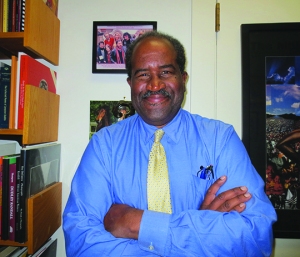
Professor Weaver, who holds the first endowed chair at Simmons, is the Alumnae Professor of English. Between 1970 and 1973, he served in the 342nd Army Security Agency (ASA), an Army Reserves unit, at Ft. Holabird, Maryland. His language aptitude scores were so high that the higher ups at Ft. Leonard Wood, Missouri, wanted to send him to Officer Candidate School (OCS), but at the age of 18, he chose to be a cook during his service. Weaver remained stateside for three years, but his unit was on call to replace the ASA unit in Vietnam.
“I think I was able to complete that kind of physical, moral, mental, and spiritual challenge that the military presents,” said Professor Weaver. “It gave me some of what young men see as the badge of courage. Right or wrong, there is that need to prove ourselves. I also learned the value of cooperation across difference. Those were difficult years in the country racially. We had fist fights in the barracks during basic training, but we also learned what it feels like to believe we had to ‘bring each other home.’ I am proud of the fact that I served honorably during a time of great personal loss.”
Weaver referenced the loss of his first child while serving in the Army Reserves. Today, his second child is 43 years old and healthy.
In 1973, Weaver was discharged honorably. He spent 15 years working in a factory while honing his poetry craftsmanship, when he received his “ticket to freedom,” a National Endowment of the Arts fellowship for poetry at Brown University. Weaver has been called “the African American successor to Walt Whitman” for his countless achievements in literature by Ed Orchester, professor emeritus at the University of Pittsburgh. In 2014, he won the Kingsley Tufts Poetry Award, the poetry award with the largest monetary award of $100,000. His new book, “Spirit Boxing,” due for release in February 2017, will include poems about “working in factories as a military veteran.”
Professor Andy Porter, internship director and lecturer of the Communications
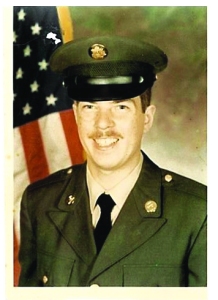
Department, also served in the Army between 1972 and 1975. He was a military journalist stationed in New Jersey, Indianapolis, and Washington. Porter attended the Defense Department Information School and served in the 49th Air Defense Command in Seattle as well as the 9th Infantry Division in Fort Lewis, near Tacoma, WA. At Fort Lewis, Porter was a sports editor of a weekly newspaper and responsible for 12-16 pages a week. He also worked for civilian editors and publishers.
“I have tremendous respect for people who serve,” said Porter. “If you know a veteran, thank him or her for their service.”
Professor Porter noted that his father was also a veteran, and he celebrates the holiday by paying him a visit every year.
“I always visit my dad’s grave to make sure there are flags there,” said Porter. “He spent more than four years in the Army during World War II and was a long-time member of the American Legion, volunteering to place flags on veterans’ graves every year until he died.”
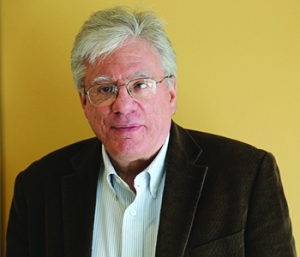
Professor Bruce Tis, an associate professor of Computer Science, served in the Air National Guard as a communications specialist between 1970 and 1976. His service was during the Vietnam War era and the draft. Tis was in the very first draft lottery and received number 13, meaning that he had to join the Army upon graduation from college.
After serving, Professor Tis taught at Boston University for 12 years and earned his Ph.D. During his time at BU, he mostly taught graduate students and felt a strong desire to teach undergraduates, which led him to Simmons.
“I believe that military service offers wonderful opportunities to develop leadership skills, as well as [to] give back for all the freedoms we enjoy in this country,” said Tis. “I would highly recommend it as a career choice.”
In honor of Veterans Day, Professor Tis echoed the sentiment of his fellow veterans.
“Certainly fly the American flag and recognize all those that gave their lives for our country,” said Tis.
Professor Gerry Benoit, associate professor in the School of Library and Information Science, served in the Navy right after high school. He scored very high on the language acquisition test, and was assigned to study Russian. His role was as a cryptologic technician interpreter of Russian.
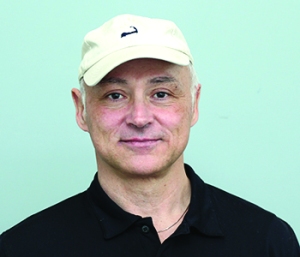
“My job was just to listen to tapes of Russian military traffic and transcribe them. If something sounded like an imminent issue, then [I would] signal someone…otherwise … the job is top secret, so not much more to say,” said Benoit.
Reflecting on Veterans Day, Professor Benoit pointed out all of the practical skills he learned from his service.
“Military service teaches you a lot. Some of the skills are just plain useful—how to treat wounds, how to save a drowning person, how to put out an oil fire on ship,” said Benoit. There were some other curious things, such as how to breathe in a chamber filled with tear gas, how to swim through an ocean with burning oil on the surface (!), how to make your pants into a life preserver … and also the many kinds of people there are.
During a holiday that students may celebrate simply for being a day off from classes, it is important to take time and reflect on all of the men and women who have served and continue to serve our country. The Voice thanks all of the veterans at Simmons for their service, as it is a true honor to learn under their leadership.









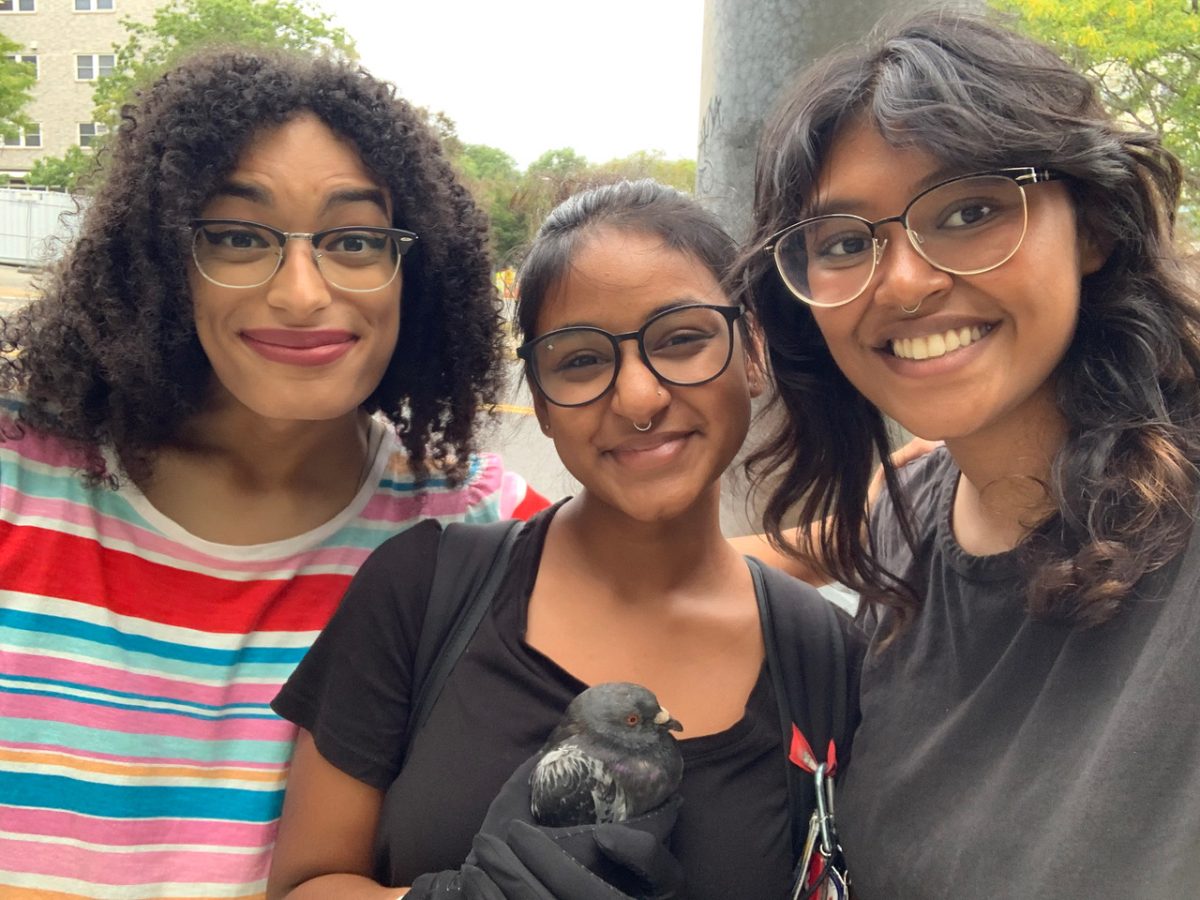
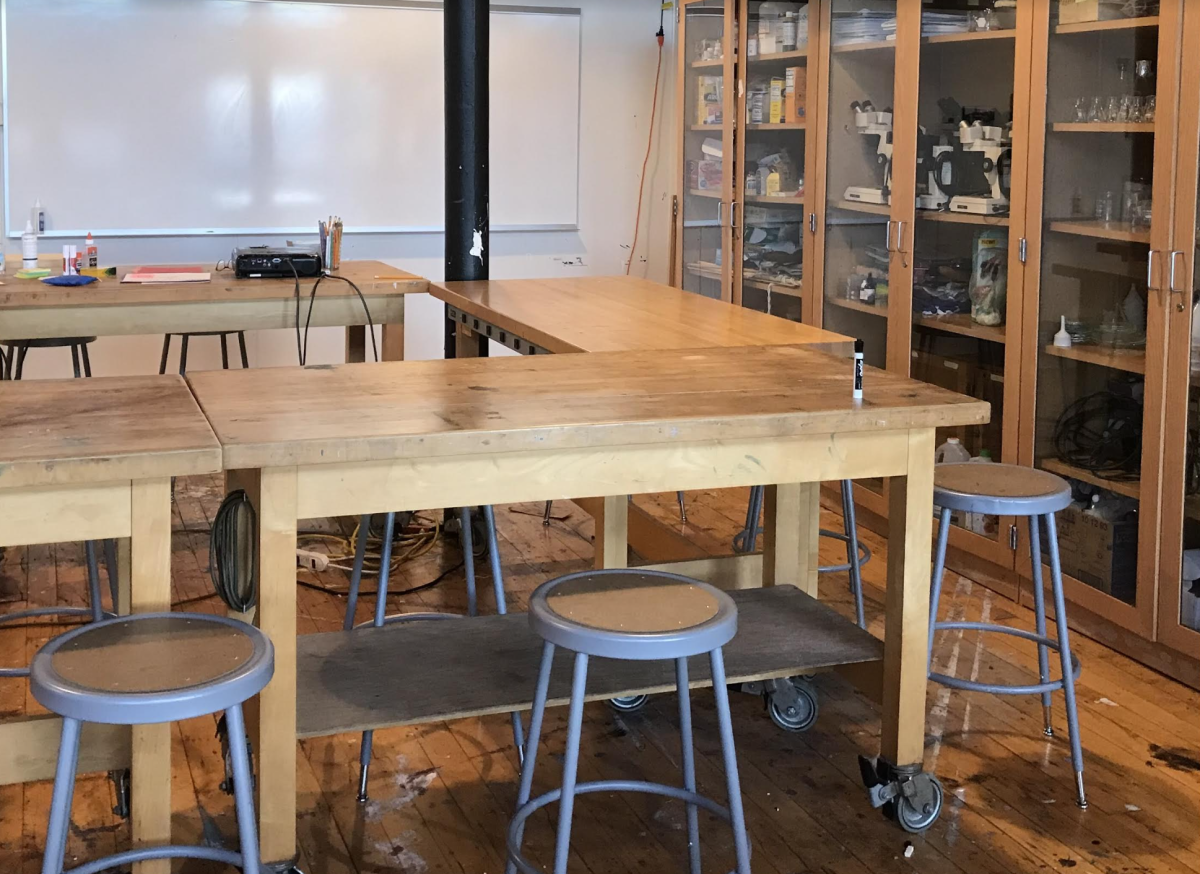

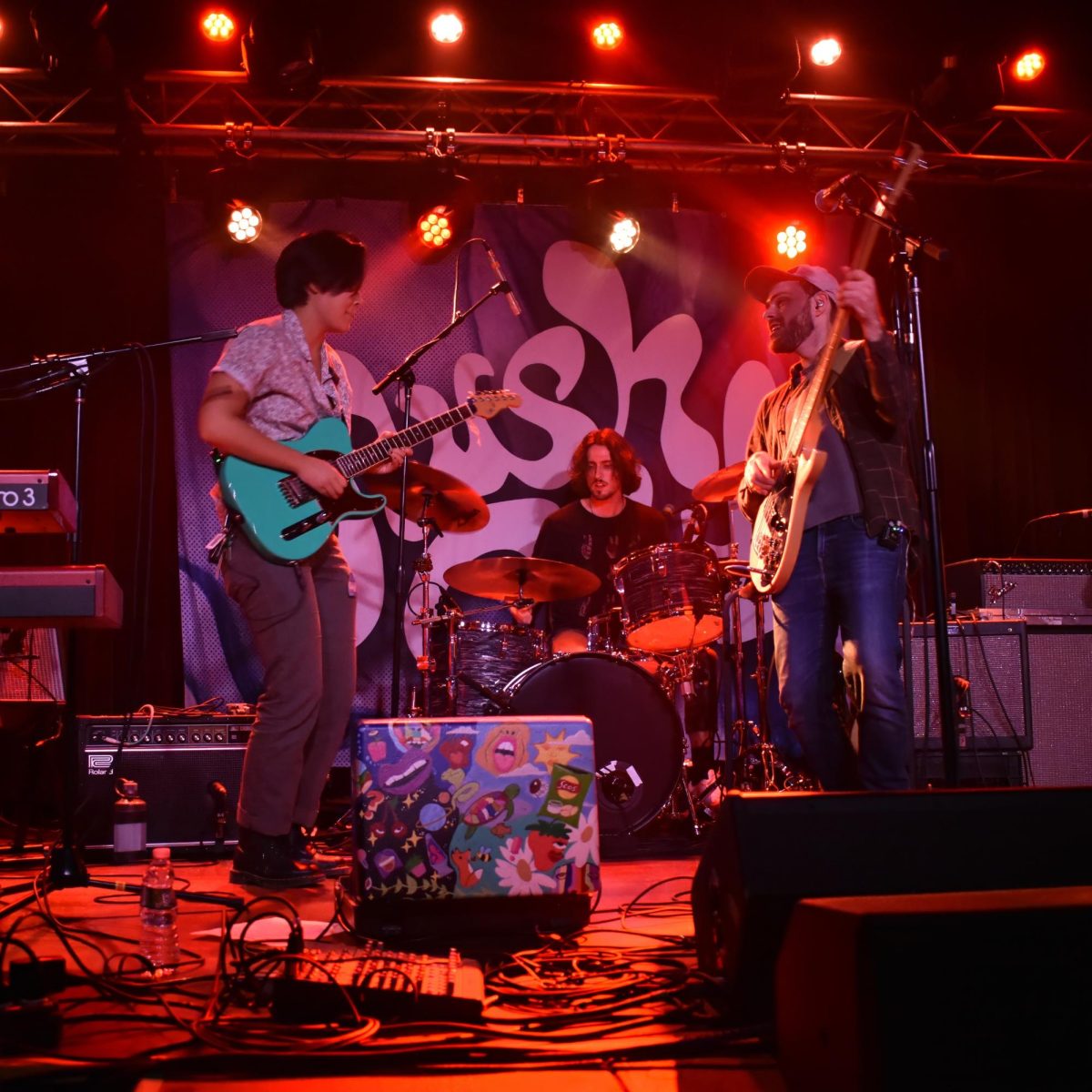
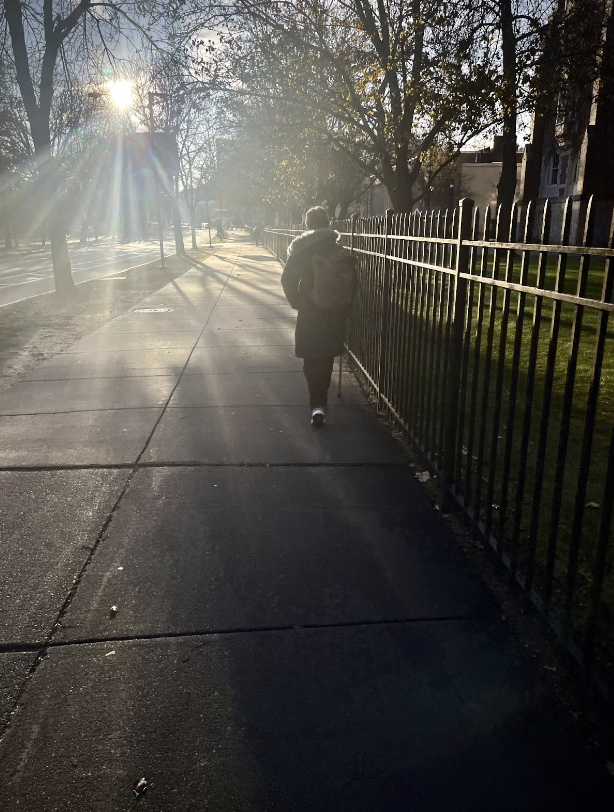

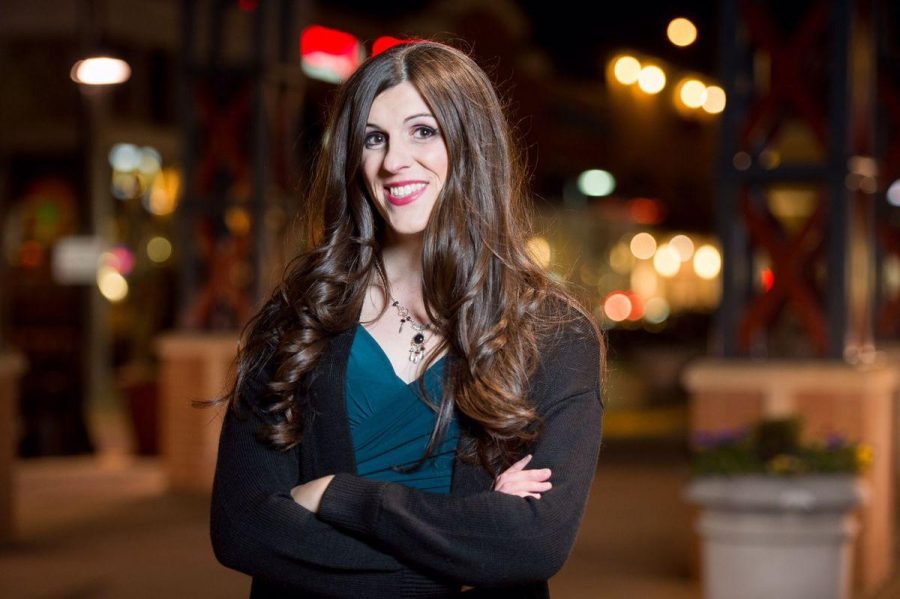



benoit • Jan 5, 2018 at 5:21 pm
Many men and women volunteer to serve … the risks to personal safety, to contributions to the people of the nation, vary, naturally, based on world events. One learns a lot in the military – everything from life skills to being kind to others’ weaknesses and praising their strengths. It’s not great that we in the 21th century need a military, but that there are people – women and men of all ages, races, genders, backgrounds – are willing to put their countryfolk and the world before their own needs. Hmmm… imagine business and other administrators doing the same (grin). I hope our students will consider the risks and the ultimate sacrifices of their fellow citizens …. No one in the military -wants- war … let’s strive for peaceful resolutions in the future and our students may take the lead. cheers
John Kulp • Nov 10, 2016 at 9:37 am
You’re welcome. Thanks for printing my comments.
John Kulp • Nov 10, 2016 at 1:51 am
Excuse me, but your description of Mr. Weaver’ service is quite odd. To my knowledge, the ASA never had any units stationed at Fort Holabird. There was where the military intelligence (MI as it was known) was stationed. ASA personnel were stationed at Fort Meade as ASA reported directly to NSA whose headquarters was/is there. Second, if he was a cook, he wouldn’t have been part of ASA but of support staff assigned to it. ASA personnel were linguists, Morse code operators, etc. Third, if he scored high on the language aptitude tests, he wouldn’t have been routed to OCS but to language school to learn a language. Now, how do I know all this? Because I was a linguist with ASA, passed those aptitude tests high in basic after enlisting in ASA directly and had been told what all the available jobs were and none were for cooks. Secondly, I intended to go to OCS out of basic, but having passed the language aptitude so high told in no uncertain terms that no matter what I wanted to do, the needs of the Army came first and I was going to language school and take my assigned language no matter what, thank you very much. If I wanted to go to OCS after language school, I could do that, which I wanted no part of because that would have added an extra year to my enlistment. Third, part of the time, I was assigned to NSA headquarters at Fort Meade and worked there along with lots of other ASAers. A normal rotation at the time. Fourth, I never heard of any unit going from the States to replace another ASA unit in Vietnam. I served with two ASA units, and, like any other ASA assignments, you simply left one unit and joined another. We did send some additional ASA units to ‘Nam early in the war as it built up, but they were de novo and not replacing any other unit. That, in fact, was exactly how I went there. Mr Weaver may well have served and served well and honorably, and for that he is to be commended just like other soldier that served/serves his country, but this particular account seems rather embellished I’m afraid.
simmonsvoice • Nov 10, 2016 at 9:19 am
Thank you for your insight, John. Thank you for serving our country.
Julie Nickerson • Nov 9, 2016 at 2:04 pm
Great article Ellen! Well done 🙂
So nice to honor those from our community that have served!
Best, Julie
On Wed, Nov 9, 2016 at 1:41 PM, The Simmons Voice wrote:
> simmonsvoice posted: “By Ellen Garnett Staff Writer As the Simmons > community prepares for Veterans Day on Friday, it reflects on those members > who have served and continue to serve in the armed forces. Faculty members, > including Professors Afaa M. Weaver, Andy Porter, Gerry Be” >
simmonsvoice • Nov 9, 2016 at 2:16 pm
Thank you so much, Julie! I really appreciate your continued support of the Voice. Thank goodness for our veterans.
-Ellen